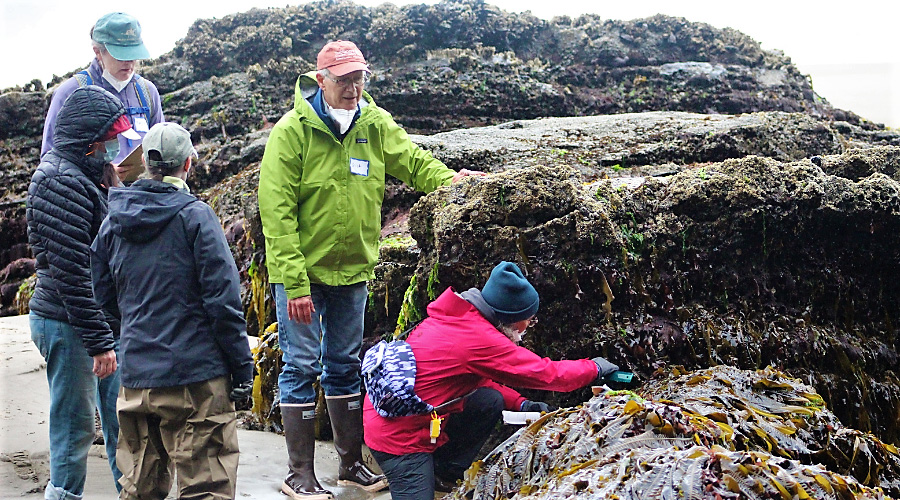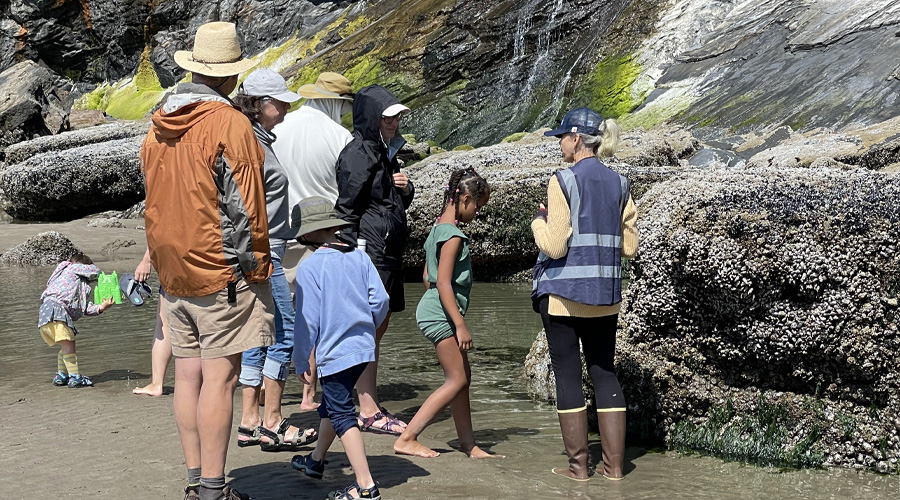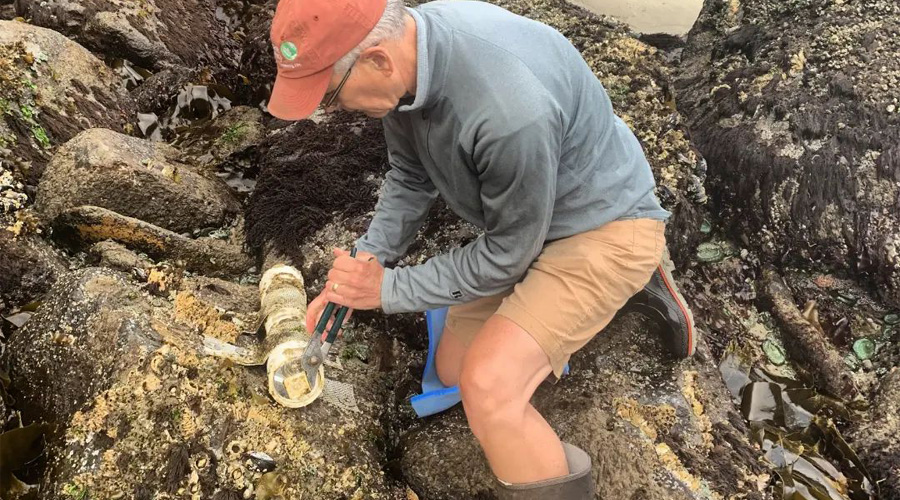Cape Falcon Marine Reserve: Overview
In 2022, NCLC adopted the Cape Falcon Marine Reserve program from the Friends of the Cape Falcon Marine Reserve. In this role, NCLC strives to support the Oregon Department of Fish and Wildlife, which manages the Oregon Marine Reserves Program. NCLC’s goal is to bring awareness to, advocate for, and educate about the Cape Falcon Marine Reserve on behalf of ODFW. Here are a few highlights from 2022:
- There were three presentations; 22 field tours (including hikes, walks, and in-the-field workshops); and five educational and community events held in 2022.
- Approximately 1,140 young people were reached through youth-specific outreach and education.
- The Marine Reserve Program participated in two Oswald West State Park Action Days, put on by Surfrider Foundation’s Portland chapter.
- Cape Falcon Marine Reserve was the site of several community science projects and efforts, including sea star surveys, seabird surveys, and ocean acidification monitoring (conducted by The Nature Conservancy in partnership with Oregon State University)
- The Tidepool Ambassador Program (TAP) ran for a second year at Short Sand Beach. The ambassadors are on the beach at low tide to talk to visitors and help educate them on what is living in the tide pools and how to respectfully interact with these sensitive marine habitats.



